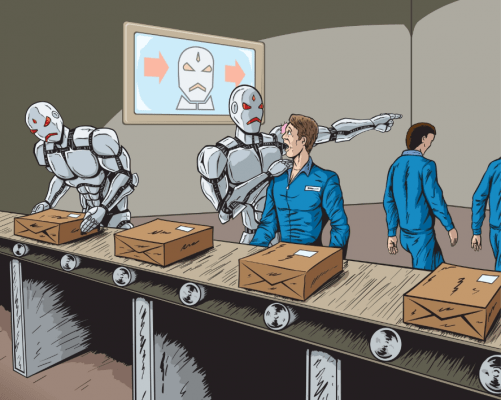Table of Contents
Why are Tech Companies Laying Off?
Before I get to the answer, let me get something off my chest: when big tech companies (Meta, Microsoft, Amazon) lay off people, it causes a nonsensical ripple effect in small tech startups.
Founders think, “If they are laying off, something is coming, I should do the same.”
The irony is that, I believe, big companies are not laying off to cut costs: they are reorganizing their workforce to integrate (you already know) AI and Automation.
Sure, you can blame market trends, geopolitical reasons, inflation, and even tariff implementations. But who is really getting laid off? In the context of software development teams, they are Junior engineers, middle management, and HR.
Why? Because there is a cheaper alternative:
- Junior engineers’ tasks (e.g., small bug fixes, documentation, and maintenance) can be replaced with AI tools like GitHub Copilot.
- Middle management work, such as cleaning up Trello boards, setting priorities, and coordinating meetings, will soon be replaced (if not by now) by AI.
- HR? I have to be honest: I never liked how HR resources were used. They were used basically to screen candidates, schedule meetings, and do administrative work. HR is about the “human” component of hiring, and because it was always misutilized, it will be wrongly replaced by AI.
Not a Structural or Cyclical Problem: It is a New Disruptive Technology

From the 16th to the early 20th century, carriage drivers were the consumer’s preferred method of transportation. Then, in 1908, the Ford Model T completely replaced horse-drawn transportation.
I started coding at the age of eight with the C64 BASIC programming language. My professional career began in 2000, and for over 25 years, I’ve met many Junior engineers.
They ask a lot of questions and distract senior engineers, get very little done, need a lot of hand-holding and time to get up to speed, and usually leave for a new startup in 1-2 years to make more money (so they capitalize on the 1-2 years of experience).
Don’t get me wrong — I’ve found exceptionally brilliant Junior Engineers (one or two in my entire career).
I’m not surprised that a Senior Engineer would prefer an AI tool to write documentation or unit tests instead of a Junior Engineer.
I would rather hire a Junior Prompt Engineer who can translate what I know into a prompts playbook.
New Roles created by AI

If you research a bit about this, you will find things like Prompt Engineers, AI Workflow designers, and AI Validators — and I’m not including roles that actually support the AI infrastructure; startups should not cover those roles (please don’t build your AI infrastructure; rent it from a third-party).
My take is that it is too early to tell. I can tell you that from my experience using the technology, we will see a few things with high confidence:
- Prompt Engineers: The cognitive tax on thinking about what to ask the AI tool is high. So, this is a good candidate for automation: “You are a smart AI, and you tell me what I should ask you.”
- Automation Engineer: Code documentation, unit tests (even functional tests), query builders, and code translators (from old languages to new languages) — yes, they can be automated right now.
- AI Workflow Designers: With the new Reasoning models, you might argue that assigning a person the task of coordinating an AI workflow is unnecessary. But in my experience, people with domain knowledge are the best at crafting the prompts, and those prompts need to be orchestrated in a workflow — think about a CI/CD pipeline. Whoever designed it knows where to inject the prompts and which prompts.
- AI Product Designers: This is yet to be seen. Right now, integrating AI into a user-facing product is basically providing a chat interface or replacing a prompt with a button. I don’t know how this will play out, but my gut feeling is telling me AI will disrupt this field, too.
Is your Startup affected by this Tech Downturn?

The answer is no. Your startup is affected by AI.
You are either in denial (AI is not mature; it is a super bubble), in panic mode (I don’t know what to do; I will just wait and see what others do), or in hype mode (If I’m spending this much money on AI, I will see some return for sure; I don’t want to be behind).
As with many other things, you need to find a balance and what works for you. You absolutely must not overlook AI and just wait. There are too many benefits with very little investment.
You don’t trust me? Then ask ChatGPT:
I run a small engineering team using Kanban. What is the least expensive and highest ROI task I can automate using AI? I need something that I can implement in one day and see returns forever. Pick free tools, and give me a non-technical step-by-step guide on how to implement them.
Ready to hire AI-ready Remote Engineers?
At my company, InTheValley, we’ve been prompting, automating, and implementing AI correctly for our startup clients for almost three years now.
We know how to integrate AI automation into a distributed team and teach your in-house team to leverage AI for maximum speed.
- Your Team Is Shipping Fast. That’s the Problem. - 02/21/26
- AI Moved the Bottleneck to Your Head - 02/19/26
- Stop Building AI Agents - 02/17/26